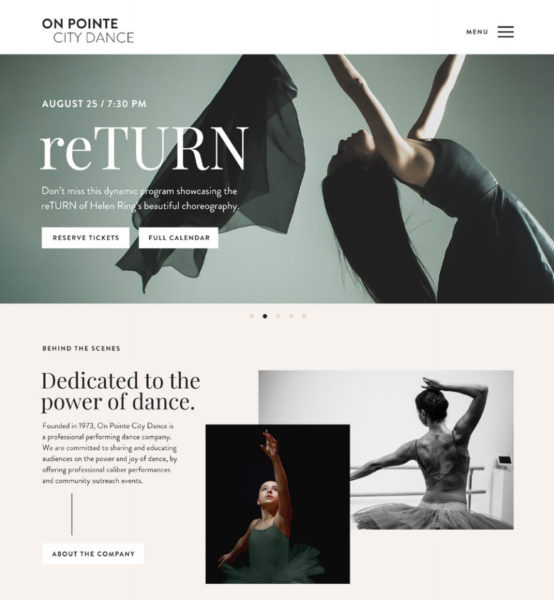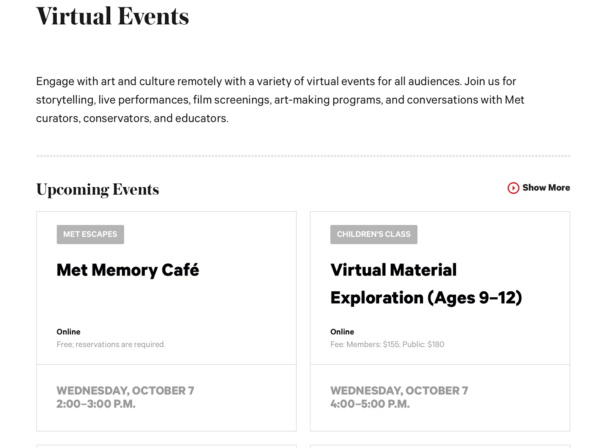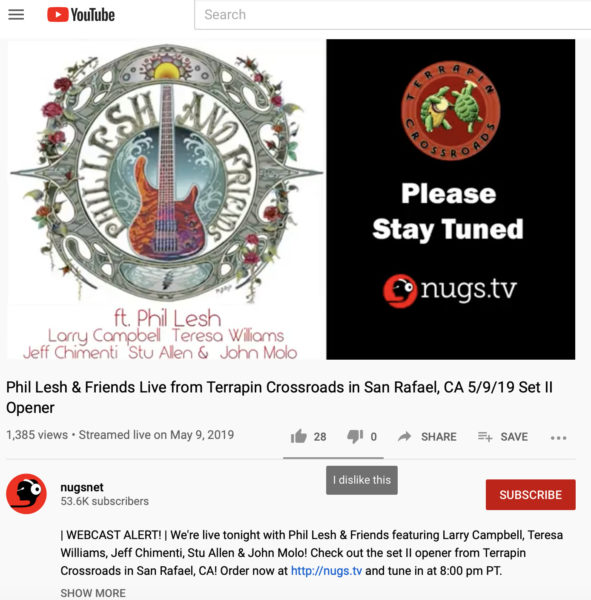
If there’s anything that 2020 has proven to business owners focused on recreation, arts, and entertainment, it’s that they need to get online.
Digital isn’t just for creative offerings, either. You must use the internet now to market your business effectively if you wish to stay competitive and relevant in today’s marketplace. At one time, you may have been able to rely on flyers around town, but times are changing — and your marketing strategy should too.
Entertainment marketing and recreation marketing might not be why you got into the industry, but it’s necessary to let people know about the upcoming events and activities you’ve planned. By focusing on digital strategies, you can reach more people and grow your business in less time than you may think.
Get a website
Many recreation, arts, and entertainment businesses make the mistake of staying in the background and leaving the online presence to venues, artists, or other companies. By not having your own website, you are limiting your company’s ability to expand.
A website can help you establish a brand identity so your future customers know what to expect when they want to buy an event ticket. Share your logo and mission under an appropriate domain name so people know they can expect high-quality events and fun.

An entertainment or arts website should have at least four pages:
- Homepage: It’s the front door of your business, so you should use it to make a good impression.
- Events page: What’s going on? This can be updated regularly so everyone will know what to add to their calendars.
- About page: Share your mission and the history of your work. Let people know that you’re a professional and you’re worth checking out.
- Contact page: How can people get in contact with you? You may have different email addresses — one for the general public and one for artists wanting to connect, for example. Add any relevant phone numbers and social media links, too.
Start simple when creating a website. You can always expand it, so there’s no need to get overwhelmed. Eventually, you can add testimonials, photos, videos, and more.
Grow your email list
Even with an amazing website, you can’t expect people to continually check your calendar to see what’s going on in your community. The arts, recreation, and entertainment industries thrive on the ability to send an email whenever there’s something to share.
Few people really want emails from their insurance company or attorney, but anyone who loves to have fun will appreciate updates from you. Start email marketing by reading up on the basics of creating a successful email marketing campaign.
For your in-person events, have an email sign-up sheet for people to stay in touch. On your website, have a place for them to sign up for your e-newsletter. Add a link to your email list on your social media page. The more email addresses you have, the easier it will be to spread the word and sell out your events.

When you have an upcoming event, whether virtual or in-person, you’ll want to plan out an event marketing strategy leading up to it.
Focus on social media
It’s likely you already have a social media presence, but make sure it’s coming from your business rather than you personally.
Even if you are an individual artist, you should have a Facebook Business page in your name. Let people become your “fans,” rather than your friends.
You’ll also want to cross-post your events on Instagram, YouTube, and Twitter, depending on your niche. In the name of consistency, make sure your pages all have the same branded look that your website does.
The “About” sections of your social media pages should also be thoroughly filled out, and you should respond as quickly as possible whenever someone reaches out through direct messaging.
This concept of being available on many different platforms is known as “omnichannel marketing,” and it’s how customers expect businesses to operate these days.
Share your safety protocols
Of course, the global pandemic that caused such challenges to the entertainment, recreation, and arts industries also created another level of expectations: safety protocols. People now demand that event planners and even individual artists have measures in place to keep everyone healthy and safe.
While your methods will vary for each situation, the outreach efforts remain the same. Have a page on your website outlining your social distancing practices and safety requirements. Share your plans through social media, and include the new rules with every ticket purchased.
Don’t be concerned with oversharing — it’s vital to the future of your business and your industry — and to the safety of artists and patrons.
Showcase the fun with video
Your future customers want to know what to expect before they decide to attend your event or head out for a day of recreation. Think about live music. Most people will check the band out on YouTube or a music streaming platform before buying a ticket. That’s why video marketing is so worthwhile for entertainment, recreation, and arts companies.
Creativity is the heart of your business, but you have to know how to channel it through the right kind of content. Many small businesses create blogs as a way to share their expertise and rank higher with search engines, but you want to show, not tell.

Making short videos that show what you’re offering, either with in-person events or virtual events, will help people see why they don’t want to miss out. It’s also a good way to create a call to action to encourage them to buy a ticket or visit your business. Don’t forget to add in keywords to captions of the videos so they show up when people search for activities near them.
Try paid digital advertisements
Another way to get in front of your target audience is through paid advertising. No longer does it work to put an ad in the local newspaper. Today, people are going online to find out what’s happening. Digital ads, especially on social media and Google, can increase sales.
Facebook ads can be targeted to specific hobbies and interests of individuals in your region, while Google Ads can help you show up when people search for certain keywords. Both are effective for the recreation, arts, and entertainment industries.
Think ahead for the best marketing strategy
To integrate these ideas, marketing professionals recommend sitting down and planning out spending strategies in advance. What events are planned? Create a timeline for when you want to get the word out, and then consider the different methods to do so.
By making a checklist of marketing tasks, it’s less likely things will fall through the cracks once the date approaches. You’ll present yourself more professionally and get more attention for your creative work.




